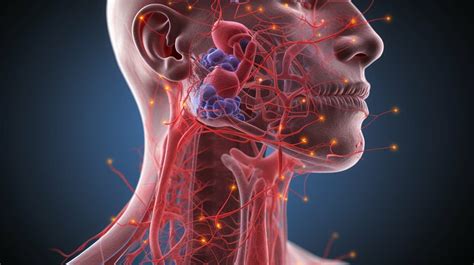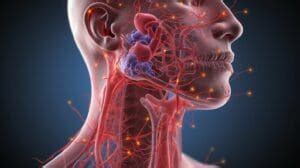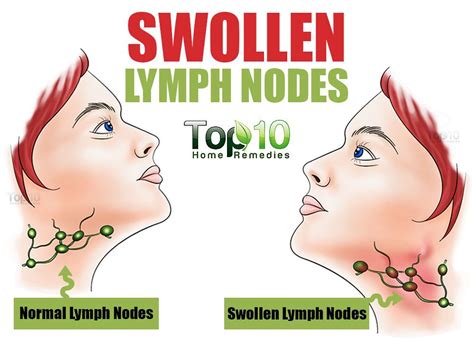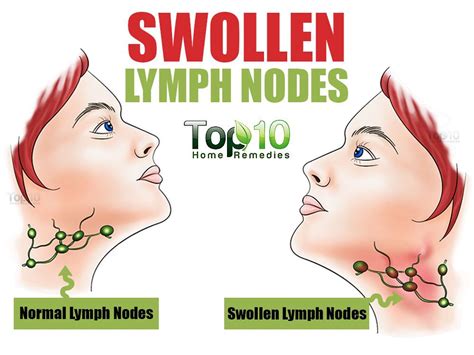Intro
The human body is a complex system, and understanding its various components is crucial for maintaining overall health. One often-overlooked aspect of our anatomy is the lymph nodes, specifically those located under the jaw. These small, bean-shaped structures play a vital role in our immune system, acting as filters for harmful substances and helping to protect us against infection and disease. In this article, we will delve into the world of lymph nodes under the jaw, exploring their importance, functions, and what it means when they become swollen or tender.
The lymphatic system is a network of vessels, organs, and tissues responsible for defending the body against infection and disease. It helps to remove waste and toxins, transport immune cells, and facilitate the healing process. Lymph nodes, also known as lymph glands, are a critical part of this system, serving as tiny filters that trap and eliminate harmful substances, such as bacteria, viruses, and other foreign particles. There are approximately 600 lymph nodes throughout the body, with a significant concentration located in the neck, under the jaw, and in the armpits.
When lymph nodes under the jaw become swollen or tender, it can be a cause for concern. Swollen lymph nodes, also known as lymphadenopathy, can be a sign of an underlying infection, such as a cold, flu, or sinus infection. In some cases, swollen lymph nodes can indicate a more serious condition, such as lymphoma, a type of cancer that affects the immune system. It is essential to consult a healthcare professional if you experience persistent or severe swelling, as they can help determine the underlying cause and provide appropriate treatment.
Understanding Lymph Nodes Under the Jaw

Functions of Lymph Nodes Under the Jaw
The lymph nodes under the jaw play a crucial role in maintaining our overall health. Some of their key functions include: * Filtering lymph fluid to remove harmful substances, such as bacteria and viruses * Trapping and eliminating cancer cells, helping to prevent the spread of disease * Activating immune cells, such as lymphocytes, to fight infection and disease * Aiding in the removal of waste and toxins from the body * Helping to regulate the immune system and prevent autoimmune diseasesCauses of Swollen Lymph Nodes Under the Jaw

Symptoms of Swollen Lymph Nodes Under the Jaw
The symptoms of swollen lymph nodes under the jaw can vary depending on the underlying cause. Common symptoms include: * Swelling or tenderness in the affected area * Redness or warmth to the touch * Pain or discomfort when swallowing or speaking * Fever or chills * Fatigue or weakness * Weight loss or loss of appetiteTreatment Options for Swollen Lymph Nodes Under the Jaw

Home Remedies for Swollen Lymph Nodes Under the Jaw
In addition to medical treatment, there are several home remedies that can help alleviate symptoms of swollen lymph nodes under the jaw. These include: * Applying a warm compress to the affected area to reduce swelling and pain * Drinking plenty of fluids, such as water or herbal tea, to help flush out toxins * Getting plenty of rest to help the body recover from infection or illness * Practicing good hygiene, such as washing your hands regularly, to prevent the spread of infection * Eating a healthy diet rich in fruits, vegetables, and whole grains to help boost the immune systemPrevention of Swollen Lymph Nodes Under the Jaw

Risk Factors for Swollen Lymph Nodes Under the Jaw
Certain individuals may be at a higher risk for developing swollen lymph nodes under the jaw. These include: * People with weakened immune systems, such as those with HIV or undergoing chemotherapy * People with a history of cancer or lymphoma * People who have recently traveled to areas with high rates of infection or disease * People who have been exposed to toxins or chemicals that can weaken the immune systemWhat are the symptoms of swollen lymph nodes under the jaw?
+The symptoms of swollen lymph nodes under the jaw can include swelling or tenderness in the affected area, redness or warmth to the touch, pain or discomfort when swallowing or speaking, fever or chills, fatigue or weakness, and weight loss or loss of appetite.
How are swollen lymph nodes under the jaw diagnosed?
+Swollen lymph nodes under the jaw are typically diagnosed through a physical examination and medical history. Your healthcare provider may also order imaging tests, such as a CT scan or MRI, to help determine the underlying cause of the swelling.
Can swollen lymph nodes under the jaw be prevented?
+While it is not always possible to prevent swollen lymph nodes under the jaw, there are several steps you can take to reduce your risk. These include practicing good hygiene, getting vaccinated against common illnesses, eating a healthy diet, getting plenty of rest, and managing stress.
In conclusion, lymph nodes under the jaw play a vital role in our immune system, helping to protect us against infection and disease. If you are experiencing symptoms of swollen lymph nodes under the jaw, it is essential to consult a healthcare professional to determine the underlying cause and receive proper treatment. By understanding the importance of lymph nodes and taking steps to prevent illness and infection, you can help keep your immune system strong and reduce your risk of developing swollen lymph nodes under the jaw. We invite you to share your thoughts and questions in the comments section below, and don't forget to share this article with others who may be interested in learning more about this important topic.
